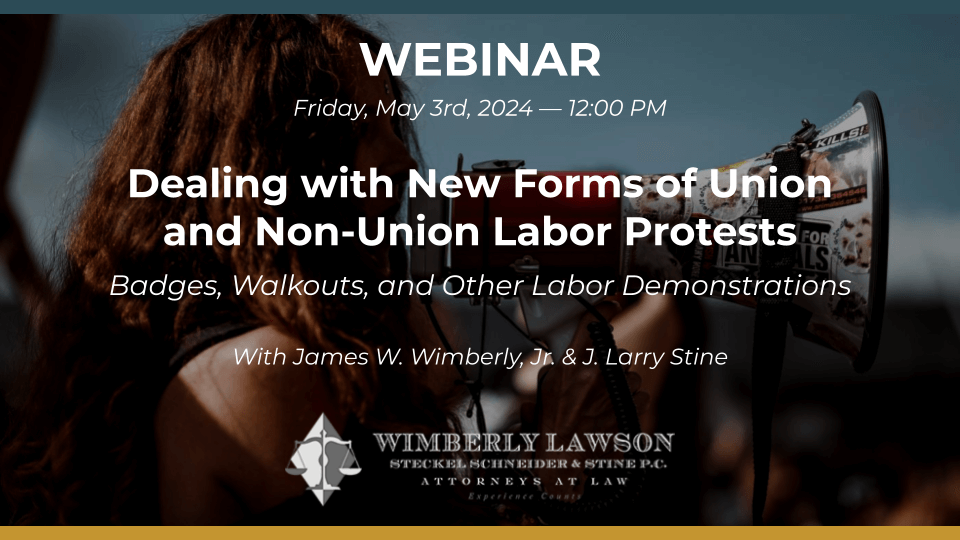Concerted Activity
One of the most vexing issues for employers over the years is whether the action of an individual employee constitutes "protected concerted activity," which is protected against retaliation by the employer under the Labor Act. Some of these cases, often decided adversely to the employer, arise in a context in which a single employee engages in some type of protest in front of other employees, and which may be presumed by the NLRB to be initiating group action. While the intent to initiate group action has often been found sufficient to be considered protected and concerted, a recent NLRB decision casts doubt on that conclusion.
In Alstate Maintenance, 367 NLRB No. 68 (1/11/19), an employee complained in front of several other employees and a supervisor that they were not going to be properly tipped for certain work, and afterward there was a reluctance and some slight delay at beginning the job performance. The employer fired the complaining employee. The issue before the NLRB was "whether respondent's Skycap Greenidge was discharged because he engaged in protected concerted activity when he raised concerns to his direct supervisor in front of his co-workers about the possibility that he and his co-workers would not receive tips for a job assignment." Ultimately, the NLRB ruled that the complaint by the employee was not protected under Section 7 of the Labor Act: "Individual griping does not qualify as concerted activity solely because it is carried out in the presence of other employees and a supervisor and includes the use of the first-person plural pronoun ['we']." The NLRB reasoned that what really happened was a brief encounter between the supervisor and his supervisees, the giving by that supervisor of a work assignment, and a gripe about the assignment by an employee who subsequently disclaimed any object of initiating or inducing group action by testifying that his remark was "just a comment." The NLRB set forth five factors relating to whether an employee was trying to initiate group action:
- The statement was made in an employee meeting called by the employer to announce a decision affecting wages, hours, or some other term or condition of employment;
- The decision affects multiple employees attending the meeting;
- The employee who spoke up in response to the announcement did so to complain about the decision, not merely to ask questions about how the decision would be implemented;
- The speaker protested the decision's effect on the workforce, not solely its impact on the speaker himself; and
- The meeting presented the first opportunity employees had to address the decision, so that the speaker had no opportunity to discuss it with other employees beforehand.
While the ruling does not make clear the circumstances when an employee complaining in front of other employees will likely to be considered protected and concerted, it at least sets forth the factors to be considered. The issue, of course, is whether a single employee can be engaged in concerted activity that usually requires the actions of two or more persons.
Related Content
Get Email Updates

Judge Invalidates Joint Employer Rule, and Independent Contractor Rule Takes Effect

The Importance of Fairness in Employment to the Law and to Job Satisfaction

Major Employers Challenge Constitutionality of Labor Act

Starbucks' Big Change in Labor Policies

Judge Orders Survey Data to Be Revealed from Employer EEO-1 Reports

